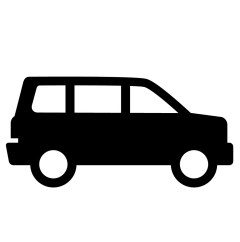


 “Watch this,” said my Irish Army friend “Seamus” as a stream of Afghan government officials left the International Security Assistance Force Headquarters building and walked through the Kabul night towards their armored Toyota Land Cruisers. They had just concluded a dinner meeting with International Security Assistance Force (ISAF) senior leaders and were about to head home.
“Watch this,” said my Irish Army friend “Seamus” as a stream of Afghan government officials left the International Security Assistance Force Headquarters building and walked through the Kabul night towards their armored Toyota Land Cruisers. They had just concluded a dinner meeting with International Security Assistance Force (ISAF) senior leaders and were about to head home.
“These guys just spent several hours talking about how to work together for the future of Afghanistan,” Seamus informed me, “but watch what happens next.”
Six heavily-bearded men climbed into SUV’s and disappeared behind thick, dark panes of bulletproof glass. Their work for the day was over, and my final task for the evening was about to begin.
During my time in Afghanistan, I was charged with leading a small team of escort officers from a handful of different nations – Canada, Croatia, Romania, the Czech Republic. In addition to our main job of coordinating schedules and arranging billeting, transportation, and security for visiting NATO VIP’s, we also occasionally helped move visitors around the tiny ISAF compound, serving as ground guides for their vehicles.
Most of the time, ground-guide duty was as easy as it sounds. Just walk in front of the vehicle, keep it at an appropriate speed and act as a safety monitor for drivers and pedestrians alike along the narrow compound streets. Even an Air Force lieutenant colonel like myself could handle this gig. For our Afghan guests, ground guides also ensured the driver followed the approved route and had a credentialed monitor with them during their brief transit between the meeting location and the front gate.
Long before the meeting ended, I had pre-positioned members of my team in front of every other vehicle. The idea was to guide them out in pairs, with each guide responsible for two SUVs. The vehicles, engines running for the past half hour, were waiting for their passengers in a single file line in front of HQ. Because the road itself was barely wide enough for two abreast, we all hoped there would be no inbound traffic during our short egress.
As the doors slammed shut, Seamus’ prediction came true. Ignoring the ground guides, and in some cases apparently trying to maneuver around them, each SUV lurched forward in an attempt to get in front of the others.
It wasn’t pretty.
My crew and I managed to prevent any visitors from driving off unescorted, mainly by jumping in front of first one moving vehicle and then another, waving wildly and trying to remain illuminated by the headlights. We were inadvertently assisted in this effort by the drivers themselves, as they jockeyed for position and awkwardly blocked the SUVs behind them. The narrow road certainly helped as well.
Untangling the mess took some time, but despite the language barriers and the reluctant cooperation from the drivers, we did it. No doubt everyone would have reached the exit much faster if they’d simply cooperated from the start
Now, I wasn’t in the room during the VIP dinner, so I don’t know the details of their discussion. I also wasn’t in any of the vehicles, so I don’t know what went on behind that tinted glass. All I know is what I could see as I jumped and waved my arms in front of first this SUV, then that one.
Were the high-ranking men in the back seats encouraging their drivers to leap ahead in line, or were they unsuccessfully pleading for a more civilized departure method? Were they paying any attention at all to the traffic drama unfolding around them? Or were they instead focused on strategic thoughts about Afghanistan’s future, thoughts which could not be disrupted by something as trivial as the evening traffic flow on an ISAF compound?
Looking back, I wonder if this scene was a metaphor for some deeper reality facing Afghanistan, or was it just a meaningless symptom of the driving habits necessary to navigate the mean streets of Kabul? Was I a witness to some sort of tribal power play, a continuation of long-standing competition for prominence within the country, or did each driver incorrectly assume the vehicle in front of him planned to stay in place for a little longer, in which case waiting their turn would be an unnecessary delay? Could my small team and I have done something differently that night, to prevent the confusion and ease the departure? Would it have mattered?
Lt. Col. Dan Ward is an active duty acquisitions officer in the U.S. Air Force, recently returned from deployment to Kabul, Afghanistan. The views expressed in this article are solely those of the author and do not reflect the official policy or position of the U.S. Air Force or Department of Defense


